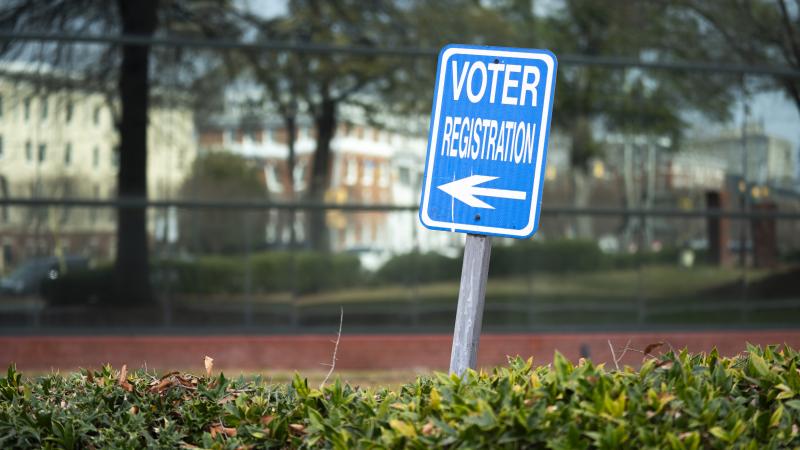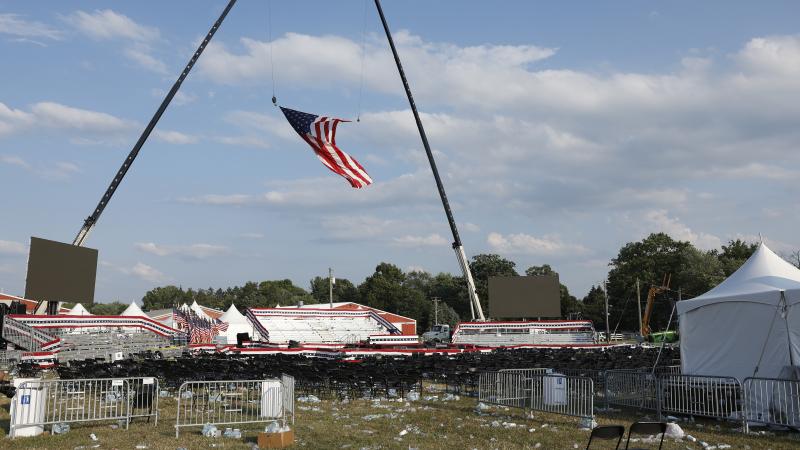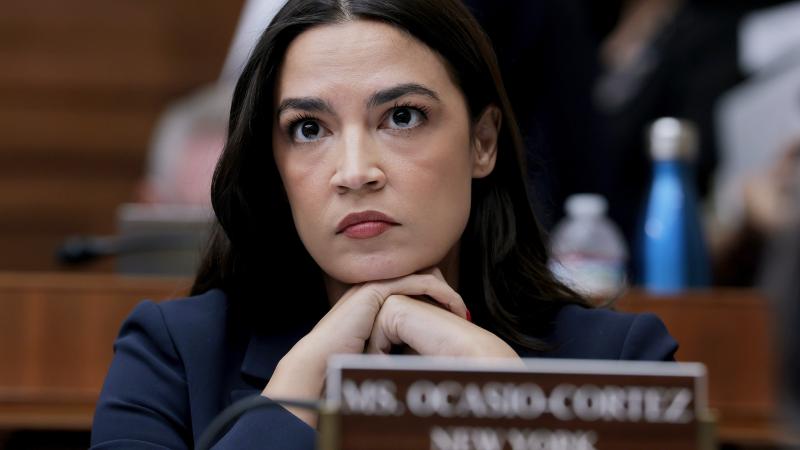Biden facing pushback after stating Key bridge to be fully paid for without congressional approval
An official cost estimate for the collapsed bridge has still not been determined. Any legislation for the bridge "must not become a pork-filled bill loaded with unrelated projects and the House of Representatives must adhere to the ‘single subject’ rule," the House Freedom Caucus said.
President Biden is receiving some pushback after repeatedly declaring that the federal government will pay for the "entire" collapsed bridge before making a formal funding request to the U.S. Congress.
An official cost estimate for the collapsed bridge has still not been publicly released by either the Biden administration or the Maryland Transportation Authority.
Just the News confirmed on Friday with a senior GOP congressional source that a funding request has not been sent to Congress from the White House.
"I fully intend, as the governor knows, to have the federal government cover the cost of building this entire bridge, all of it," Biden said on Friday after viewing the damage on-site.
Biden confirmed that $60 million in "emergency federal funding" has already been allocated for Maryland.
The conservative House Freedom Caucus has said there should be conditions tied to any federal funding to pay for the Francis Scott Key Bridge, which collapsed after a cargo ship slammed into it on March 26. The lawmakers in the caucus also said Congress should find ways to cover the repair costs rather than borrow money to pay to complete the project.
"Before Congress considers any emergency supplemental funding for the Francis Scott Key Bridge in Baltimore, it’s important that (1) we first seek maximum liability from the foreign shipping companies upfront and (2) the Port of Baltimore draws upon already available federal funds," the caucus said in a formal statement released on Friday.
"If it proves necessary to appropriate taxpayer money to get one of America’s busiest ports back online, Congress should ensure it is fully offset and that burdensome regulations (such as NEPA, the Endangered Species Act, the Davis Bacon Act, project labor agreements, etc.) are waived to avoid all unnecessary delays and costs," read the statement.
Any legislation for the bridge "must not become a pork-filled bill loaded with unrelated projects and the House of Representatives must adhere to the ‘single subject’ rule," the caucus also said in the statement.
The lawmakers also argued that the project should be connected to the Biden administration’s "pause on approvals of liquified natural gas export terminals." They said that the pause, like Baltimore harbor closure, has "severe implications for foreign trade" and it "must be lifted before Congress considers appropriating any funding for the bridge reconstruction."
Rep. Dan Meuser, R-Pa., has suggested that Biden should shift electric vehicle infrastructure funding to the collapsed bridge.
"There's no thought, just spend, that's their motto," the congressman continued. "At least even pull from some ridiculous EV expenditures that are planned as well, I mean, billions in EV charger ports and all," he said.
"Maryland received the money, actually, it was close to $7 billion," he also said, referring to funding in the bipartisan infrastructure bill that Congress previously passed under Biden. "These funds need to be utilized for modernization purposes and certainly repairing bridges. This is a crisis situation but it needs a plan, not a knee-jerk spend reaction."
After the collapse, some bridge engineering experts have said the Key bridge didn't have any pier protection devices installed to help the structure withstand a ship crashing into one of its support columns.
For comparison, the Delaware River and Bay Authority (DRBA) is overseeing a $95 million upgrade to the pier protection system at the Delaware Memorial Bridge to prevent such an accident like the one that occurred in Baltimore. The Delaware Memorial Bridge is older than the Key Bridge. The eastbound section opened on August 15, 1951 and westbound opened in 1968.
Some experts have estimated that it could take as little as 18 months or as much as 10 years to rebuild the Key bridge and cost hundreds of millions of dollars, according to the Associated Press.
The Federal Highway Administration informed Just the News that the original design requirements for the Key Bridge did not contain "vessel collision" because there weren't any national standards for pier protection until the 1980s after the collapse of the Sunshine Skyway Bridge.
When asked whether or not the Key bridge could have been retrofitted with pier protection, the Federal Highway Administration referred Just the News to the Maryland Transportation Authority. The agency hasn't not returned repeat requests for comment.
Since the collapse of the Key bridge, experts have said other bridges such as the Chesapeake Bay Bridge in Maryland lack adequate pier protection.















